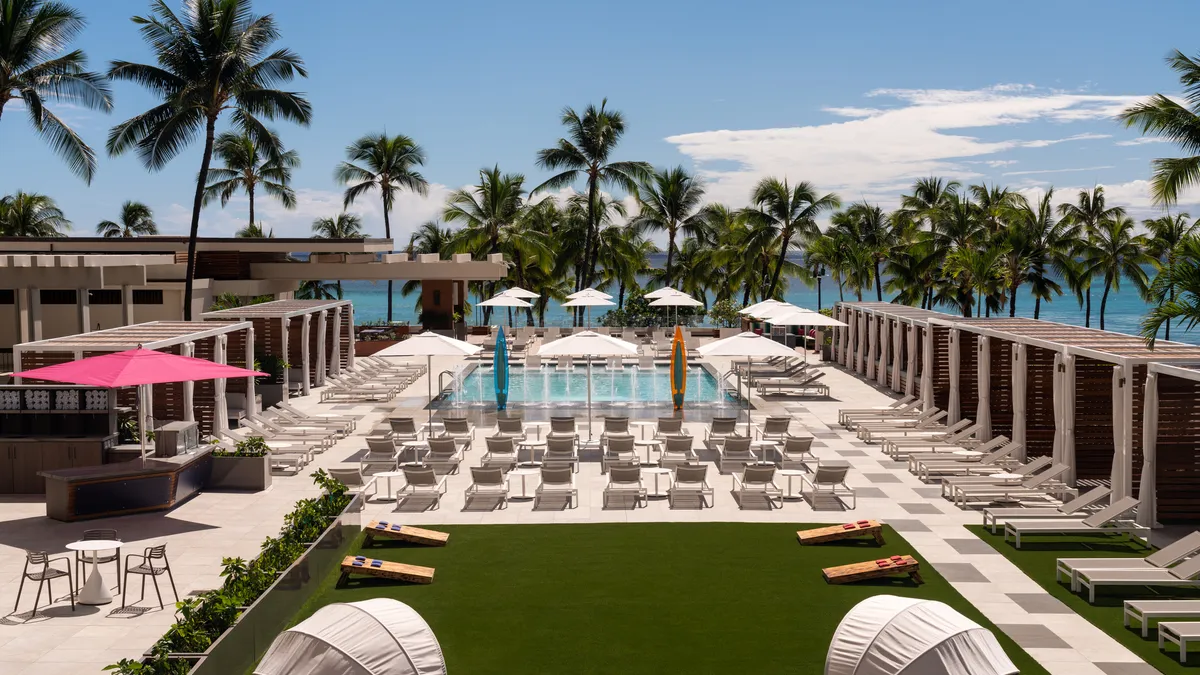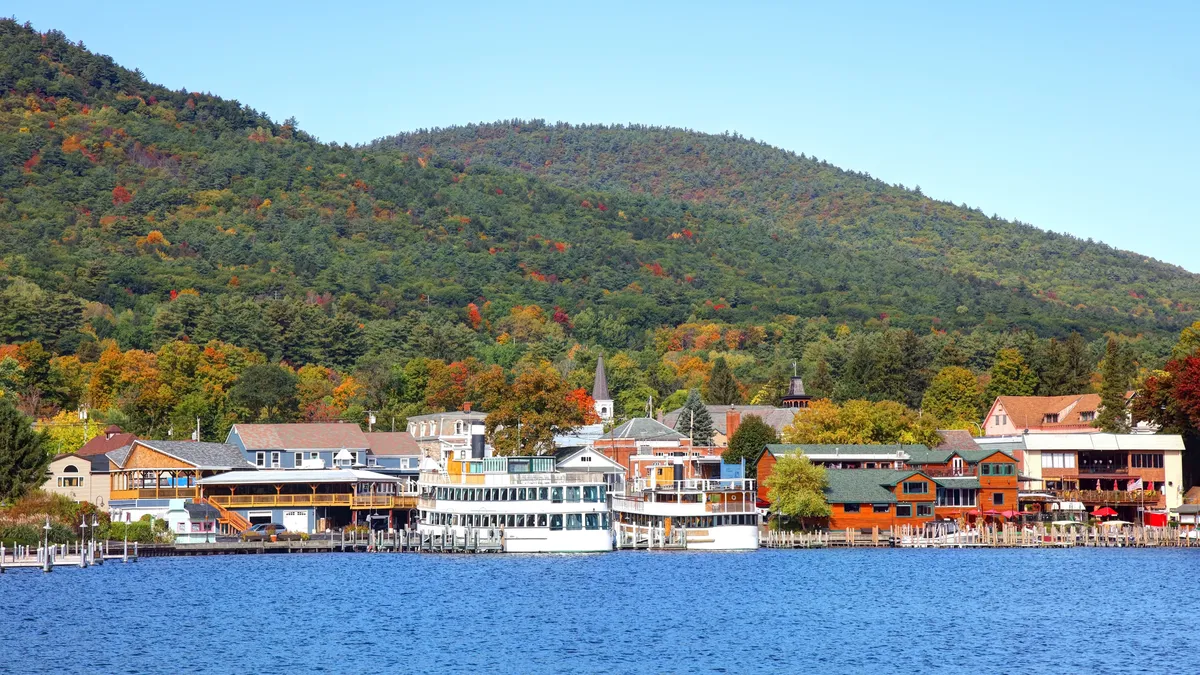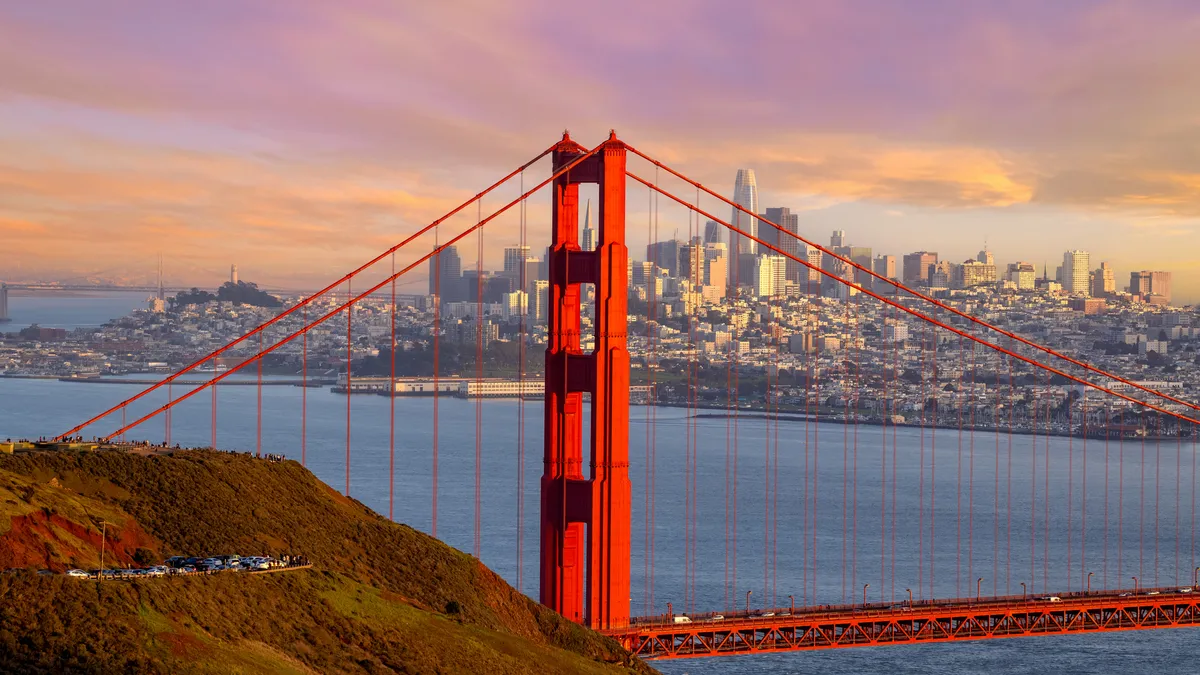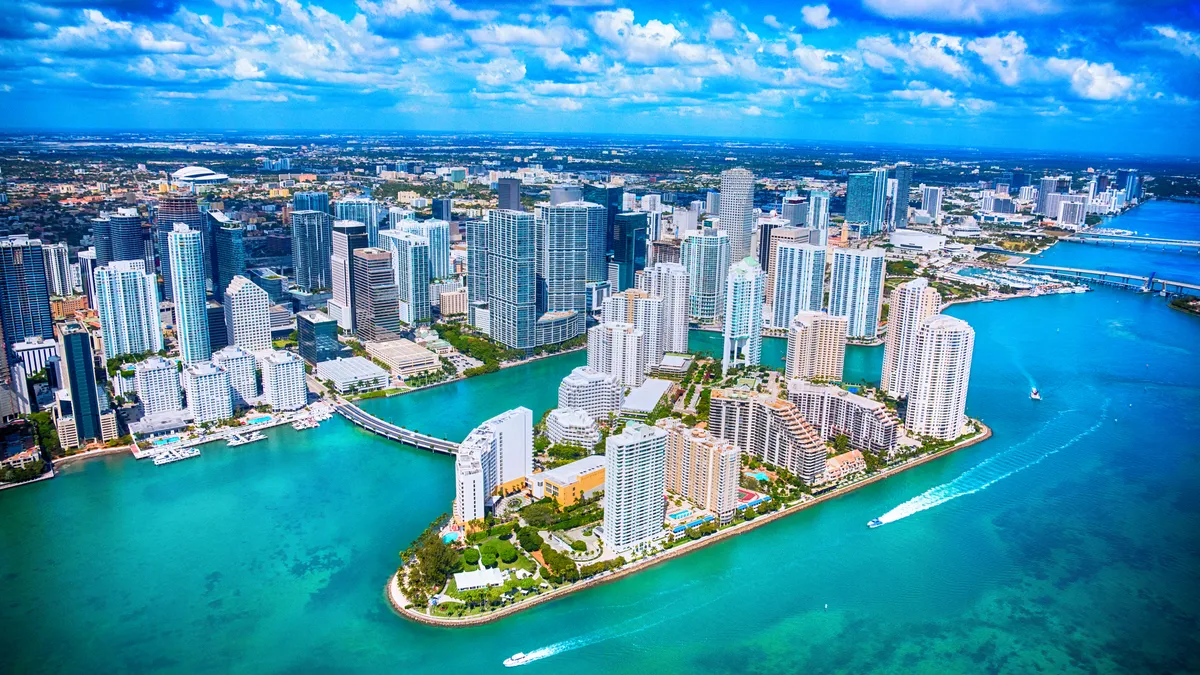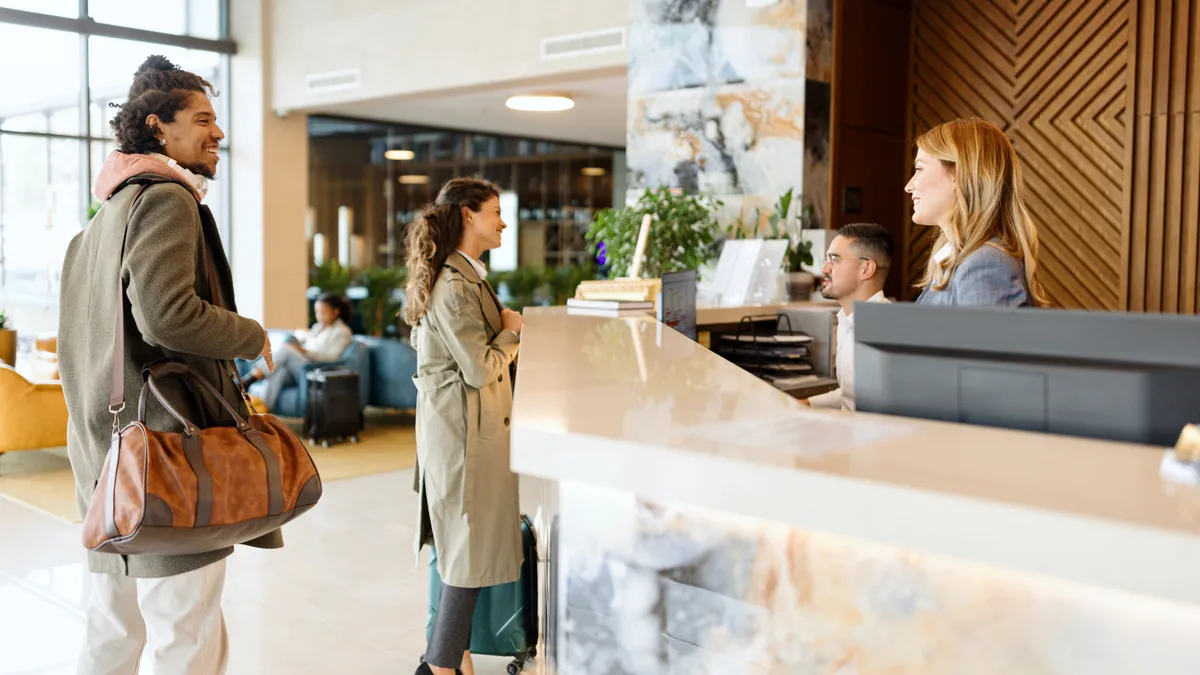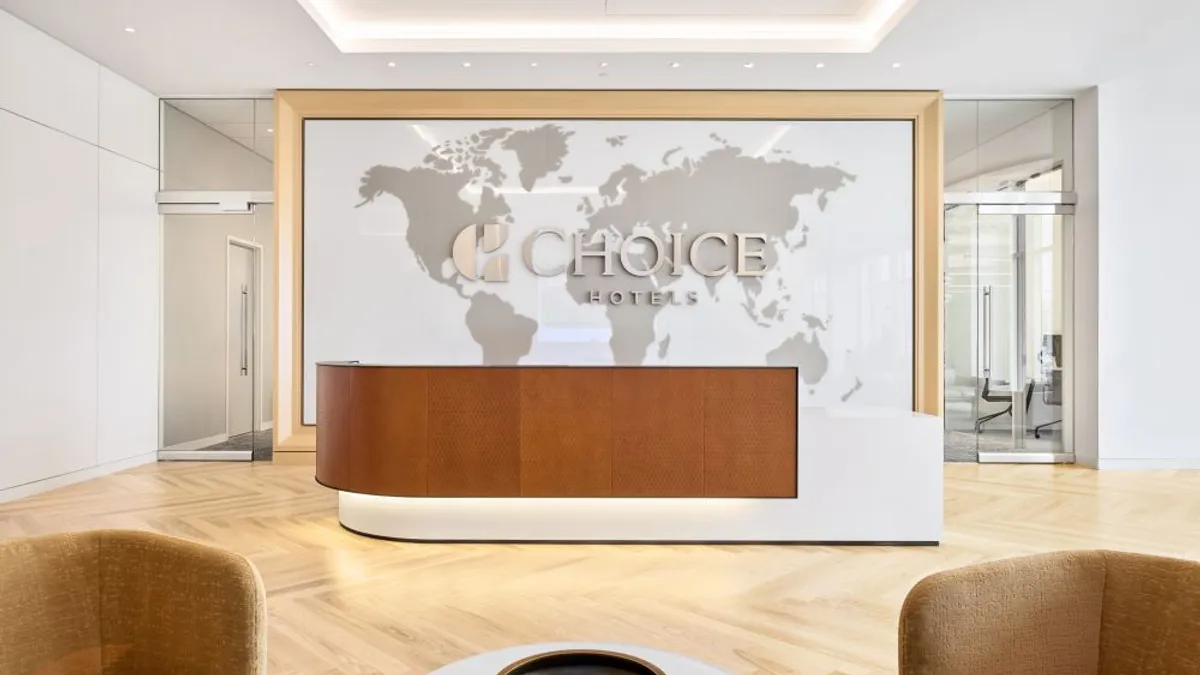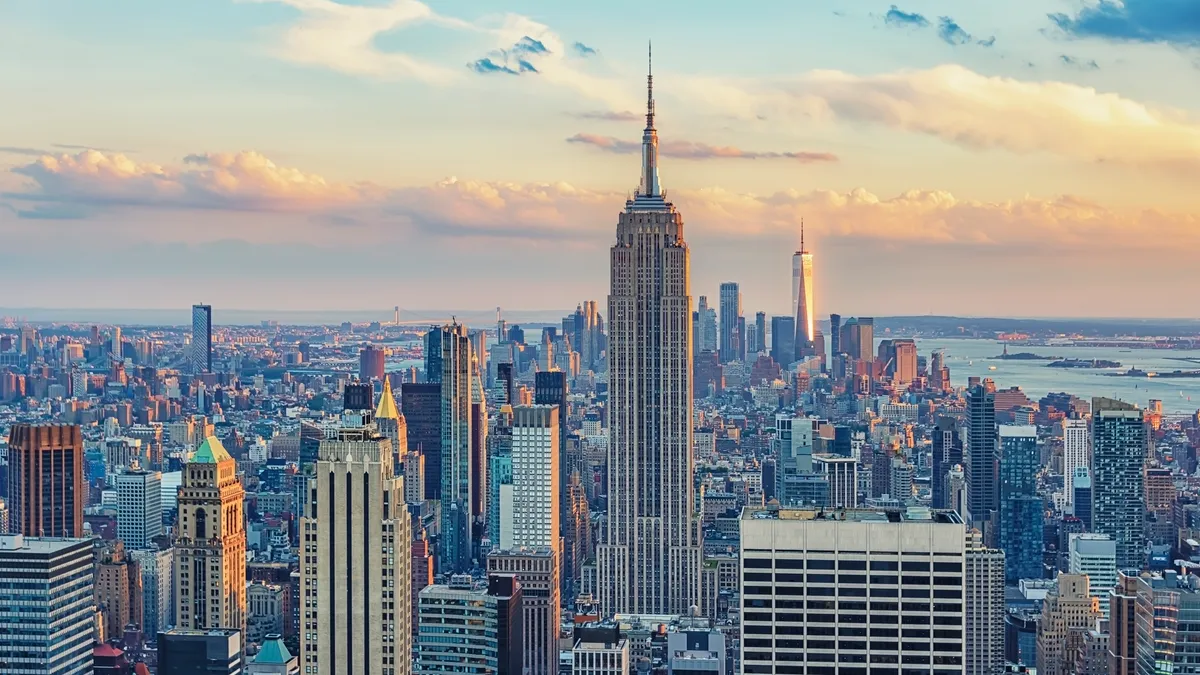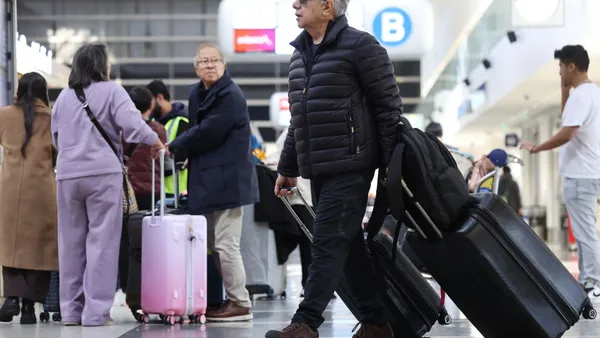As group and business travel fully recovers in several top U.S. markets, meeting planners and hotels alike are gaining optimism about the meetings and events space.
Corporate employees are again traveling to offices or gathering for large conferences and events — something halted in recent years due to the pandemic. The travel resurgence is leading to a boost in revenues and profits for hotels.
But today’s meetings and events are not the same as those of yesteryear. Travelers have different priorities when it comes to group and business trips — many of which center on memorable experiences, according to Julius Robinson, Marriott International’s chief sales and marketing officer for the U.S. and Canada.
Robinson shared with Hotel Dive the top meetings and events trends and priorities he believes will shape the hospitality industry in 2024.
Large meetings make a comeback
Large group meetings are back.
While small- and medium-size companies led recovery in group demand following the pandemic, Robinson noted, demand for large events has been strong this year.
Marriott, specifically, is currently working with customers to secure availability for future years during peak times in key markets. “After being apart for a few years, customers are showing significant energy surrounding meetings, and that’s evident in our group bookings,” he said.
During a February earnings call, Marriott President and CEO Anthony Capuano said group demand was the “standout customer segment” in the fourth quarter of 2023, with the company’s group revenue up 7% year over year in the U.S.
Markets including Dallas, Atlanta and New York City have all seen a resurgence of large group travel in the last year, according to local hospitality experts. And group demand in Las Vegas is pacing well and set to drive hotel revenue and occupancy growth this year, according to area operators including MGM Resorts and Wynn Resorts.
Travelers want nontraditional venues and local influences
It’s not just group size that’s changing. Business and group travelers’ wants are evolving as well, Robinson noted.
Like leisure guests, business travelers want more experience-based amenities and accommodations.
“Our teams have received increasing requests for nontraditional venues, outdoor setups and reimagined creative spaces,” Robinson said.
Marriott hotels have worked to accommodate these requests. At Muir, an oceanfront Autograph Collection property in Halifax, Canada, planners can book meeting spaces with 360-degree water views or rent the hotel’s 36-foot private yacht, Robinson said.
And Marriott is not the only company to notice these changing preferences.
Matt Mering, EVP of hospitality at Chicago-based national real estate investment firm Waterton, which recently launched outdoor-centric hotel brand Outbound Hotels, told Hotel Dive in September that the brand has “seen a real increase in demand for things like corporate retreats.”
“People aren’t necessarily going back to the office five days a week in a post-COVID world, so there’s been increased demand for experiences and these types of locations where you can get your team together and have off-site retreats,” Mering said.
Showcasing the surrounding destination and its culture is another way hotels are providing unique, memorable experiences to business travelers, Robinson explained.
At Waikiki Beach Marriott Resort & Spa, meetings and events guests can connect through the resort’s ʻauʻaukai ceremony, which “incorporates practices of purification via ocean water” and is held at sea, according to Marriott. This practice helps attendees “emerge with a clearer focus on mutual goals,” Robinson said.
Luxury Marriott hotels across the country are also increasingly incorporating local ingredients into their culinary offerings.
Bleisure travel isn’t going anywhere
As evidenced by “shoulder night” bookings on Sundays and Thursdays, Robinson said, hotel guests are adding days pre- and post-conference — a sign that “blended travel is here to stay.”
This trend has been on the rise for a couple of years, with the Global Business Travel Association finding that some 37% of North American business travelers extended a work trip for leisure in 2021. Additionally, GBTA found that 46% of those who had taken a bleisure trip in the past year indicated there was a high possibility they would take one again.
Businesses are taking note of this trend and selecting their hotel and meeting space based on family-friendly amenities such as a pool, childcare or kids’ camp programs and perks to nearby attractions, Robinson said.
One hotel capitalizing on this is the Sheraton Orlando Lake Buena Vista, which features more than 31,000 square feet of events space and has offered perks such as complimentary Walt Disney World Resort tickets to groups with room blocks of 50 or more.



